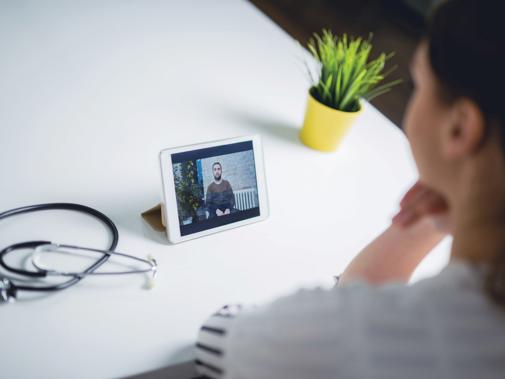The original COVID-19 primary care standard operating procedure advised practices and the population to direct requests for COVID-19 advice to 111, and this message has remained embedded even when the national directives reversed this in the subsequent standard operating procedure.
The perceived risks of attending healthcare centres and emergency departments in person have reinforced the use of 111 as the first option. The lack of availability of PPE (personal protective equipment) may also have contributed to this change in behaviour of practice clinicians.
So what is it like doing sessional work handling 111 calls?
Unless you are working for the COVID-19 clinical assessment service, the range of calls is diverse. Working alongside other clinicians such as advanced nurse practitioners, paramedics and dental practitioners is a very interesting way to learn new slick methods to develop your triage narrative. There are also exciting roles within 111 work to intercept potential visits to the emergency department by providing more appropriate remote advice (Talk before you Walk).
There is significant overlap with OOH (out of hours) work if you do the 111 work during the OOH period and for me, this has been a gentle reintroduction to an area of practice I have not done for some time. Having colleagues to confer with is crucial in this regard and thankfully most systems can tell you who else is on shift to answer questions if there isn’t a shift leader formally assigned to support you. The software in use varies (Adastra, System1, Cleric) and training may be provided remotely, through videos, as well as in person.
The addition of EPS prescribing capability through EPS4 (where prescriptions can be accessed at any chemist with the use of the NHS number), means one can now have a satisfying sense of completing some minor illness cases without having to redirect the patient to another wait with their OOH provider or practice for a prescription. Unfortunately, it also means a significant volume of weekend calls demanding replacements for lost prescriptions for controlled drugs.
111 call handling is provided by different types of organisations in different areas, according to varied commissioning arrangements. Providers include, for example, ambulance trusts, urgent care centres and out-of-hours providers. The work is NHS work and as such is indemnified under the NHS clinical negligence scheme and is also superannuable. The recently created COVID-19 CAS service has been set up to handle COVID calls, so has a narrower disease remit but a broader geographical remit.
The provision of hardware for working from home has not been as available to sessional GPs as it has been for practice-based GPs but this too is changing and solutions are being explored to enable the secure use of personal equipment thus removing the obstacle of lack of access to approved hardware.
Prior to COVID, sessional GPs would only be able to seek work with their local organisation. The move to remote working has changed all this and now potentially a GP can search for 111 roles across the country to find the most favourable terms.
Unlike practice-based work, OOH work and some urgent care work, 111 is not currently based on time slots so feels less pressurised even though the work can be fairly intensive. It is also rewarding to provide remote support to ambulance crews called to visit patients who might be managed at home.
The wider the catchment areas of your patients, the greater the potential variations in the local configuration of services. Thankfully you don’t need to have local knowledge of these services as once you have made a clinical decision about a generic ‘disposition’ (eg needs to be seen face-to-face in primary care within six hours), the directory of services (DOS) will match your patient to an appropriate local service which is open. Occasionally your administrator support may need to help you out when the computer ‘says no’.
Many GPs will not have considered the option of 111 work and hopefully, this blog has provided an overview of what it offers.
Paula Wright is a sessional GPs committee member

